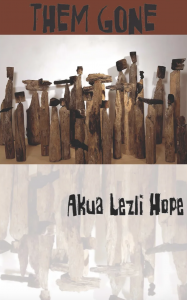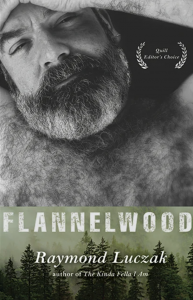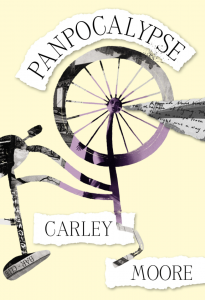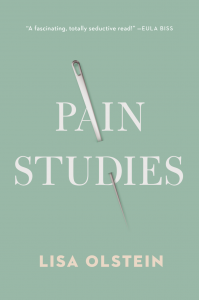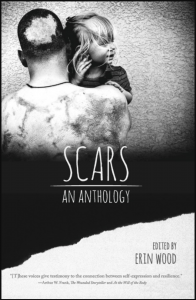For Disability Pride Month, observed annually during the month of July, we asked the many independent literary presses and magazines that make up our membership to share with us some of the literature they have published by writers who identify as people with disabilities.
Poetry
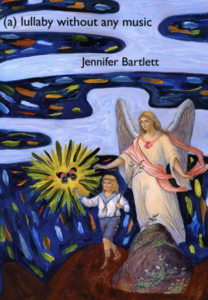 (a) lullaby without any music by Jennifer Bartlett
(a) lullaby without any music by Jennifer Bartlett
CHAX Books | 2012
According to Charles Bernstein, “Bartlett’s poems sparkle with unadorned being and sardonic becoming. Till we become ourselves in their reflection, refigured as beauty.”
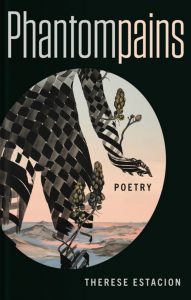 Phantompains by Therese Estacion
Phantompains by Therese Estacion
Book*hug Press | 2021
This poetry collection, which takes inspiration from Filipino horror and folktales, “is a visceral, imaginative collection exploring disability, grief and life by interweaving stark memories with dreamlike surrealism.”
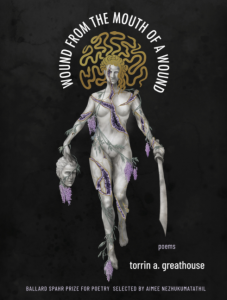 Wound from the Mouth of a Wound by torrin a. greathouse
Wound from the Mouth of a Wound by torrin a. greathouse
Milkweed Editions | 2020
Selected by Aimee Nezhukumatathil as the winner of the 2020 Ballard Spahr Prize for Poetry, greathouse’s debut poetry collection “challenges a canon that decides what shades of beauty deserve to live in a poem” and “honors bodies the world too often wants dead.”
The Word Works | 2018
According to Tyehimba Jess, this poetry collection is “a homegoing of homegirl reminiscence, a family reunion in verse and sound that sings a personal and public history alive and into our hands.”
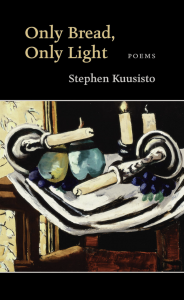 Only Bread, Only Light by Stephen Kuusisto
Only Bread, Only Light by Stephen Kuusisto
Copper Canyon Press | 2000
In his first poetry collection, Kuusisto “explores blindness and curiosity, loneliness and the found instruments of continuation.”
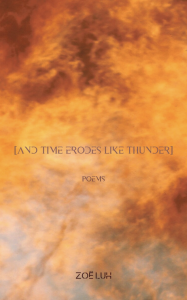 [and time erodes like thunder] by Zoë Luh
[and time erodes like thunder] by Zoë Luh
Assure Press | 2020
In her debut poetry collection, Luh “powerfully chronicles one mixed-race, Chinese-American’s emotional response to the trauma experienced in her family.”
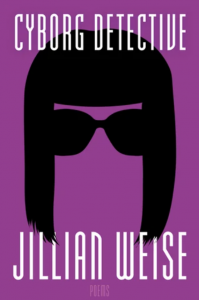 Cyborg Detective by Jillian Weise
Cyborg Detective by Jillian Weise
BOA Editions | 2019
Weise’s third collection of poetry “holds a magnifying glass to the marginalization and fetishization of disabled people while claiming space and pride for the people who already use technology and cybernetic implants every day.”
Fiction
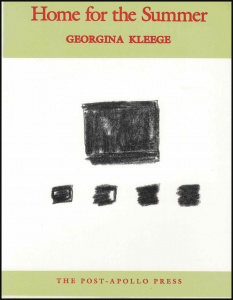 Home for the Summer by Georgina Kleege
Home for the Summer by Georgina Kleege
The Post-Apollo Press | 1989
This 1989 novel by the internationally known disability rights scholar is “a gripping parable about the disintegration of the American family.”
Red Hen Press | 2019
According to Jeff Mann, this novel “deftly melds an aching tale of romantic loss with prose poetry and depictions of disability that transcend clichés.”
Feminist Press | Forthcoming in 2022
According to Jamia Wilson, “Moore’s sharp and provocative voice adds much-needed complexity to the public discourse about the impact of COVID-19 on queer and disabled communities.”
Nonfiction
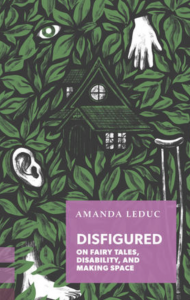 Disfigured: On Fairy Tales, Disability, and Making Space by Amanda Leduc
Disfigured: On Fairy Tales, Disability, and Making Space by Amanda Leduc
Coach House Books | 2020
In this book, Leduc “looks at fairy tales from the Brothers Grimm to Disney, showing us how they influence our expectations and behaviour and linking the quest for disability rights to new kinds of stories that celebrate difference.”
Bellevue Literary Press | 2020
In this extended lyric essay, Olstein “mines her lifelong experience with migraine to deliver a marvelously idiosyncratic cultural history of pain–how we experience, express, treat, and mistreat it.”
Literary Magazines
 “Trends and Tips: Writing Disability” by Emily Rose Cole
“Trends and Tips: Writing Disability” by Emily Rose Cole
Cincinnati Review | 2019
In this interview, Cole discusses ableist language in literature and the submissions process, the frequent use of disability as metaphor, accessibility in the literary community, and her favorite contemporary disabled writers.
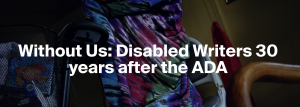 “Without Us: Disabled Writers 30 Years After the ADA” by Kenny Fries
“Without Us: Disabled Writers 30 Years After the ADA” by Kenny Fries
Evergreen Review | 2020
In this essay, Fries writes, “Despite the essential need for disabled writers to transform the understanding of disability and disabled lives, in the thirty years since the ADA’s passage, in literary circles, there remains a lack of representation of disabled people in gatekeeper positions and in our literature’s pages.”
Anomaly | 2017
According to editor Sarah Clark, “When I put out the call for work for Glitterbrain, what I wanted the most was realness, whatever that may mean. Because neurodiverse, queer, people of color are denied what is real.”
Cincinnati Review | 2020
In this essay about the experience of a trip to the grocery store with her caretaker, Mee-ok writes, “I look up to her now from my complicated wheelchair—its NASA-soft seat readies to launch me into space but instead ushers me around a grocery store.”
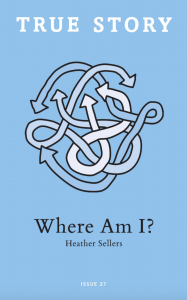 “Where Am I?” by Heather Sellers
“Where Am I?” by Heather Sellers
True Story | Issue 27
In this essay, Sellers writes, “I have struggled with left and right my whole life. In kindergarten, I looked at my thumbs to see which hand to put over my heart for the pledge. The hand they wanted us to use was not the one where my thumb had a bump on the knuckle.”
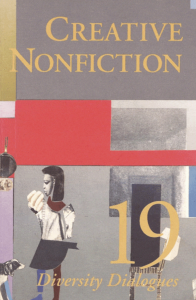 “A Measure of Acceptance” by Floyd Skloot
“A Measure of Acceptance” by Floyd Skloot
Creative Nonfiction | Issue 19
In this Walter V. Shipley Best Essay Award–winning essay, Skloot writes, “Now, 12 years after first getting sick, I’ve become adept at being brain-damaged. It’s not that my symptoms have gone away; I still try to dice a stalk of celery with a carrot instead of a knife, still reverse ‘p’ and ‘b’ when I write, or draw a primitive hourglass when I mean to draw a star.”
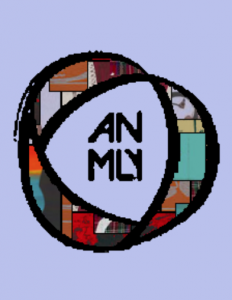 Writing Ourselves / Mad and Writing Ourselves / Mad Part 2
Writing Ourselves / Mad and Writing Ourselves / Mad Part 2
Anomaly | 2021
According to editor Sarah Cavar, the poetry, fiction, art, and other work in this two-part folio celebrate “Mad creation, craft, and methodology” and offer “a third, collaborative option, in which we can bring our whole, multiple, unrecovered and anti-recovery selves to the table to tell the stories only we know how to tell.”
Anthologies
Et Alia Press | 2015
This anthology, edited by Erin Wood, features work from forty contributors, some of whom identify as people with disabilities or who live with chronic illnesses, “focusing on the central question of what it means to live with physical scars.”
